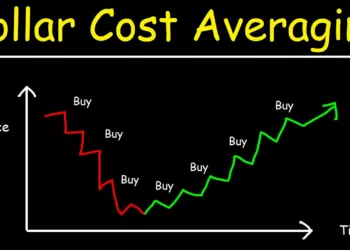Personal finance and investing can seem incredibly complex and intimidating. But with the right mindset, knowledge, and discipline, you absolutely can become your own financial advisor. When you take control of your financial education and decision-making, you put yourself in the best position to build long-term wealth and achieve your financial goals.
In this comprehensive guide, we will provide concrete, actionable steps to gain financial literacy across all aspects of personal finance. With dedication and perseverance, you can develop the skills needed to make prudent financial choices and avoid critical mistakes.
Building a Solid Foundation of Financial Knowledge
Gaining a strong base of financial knowledge should be the first priority in your journey towards financial independence. Consistent reading and learning over time will establish skills and respect for core financial principles.
Read Widely from Financial Education Books
Reading formative books on personal finance and investing provides an invaluable education. Make time to digest the wisdom from these financial classics and best-sellers:
- The Little Book of Common Sense Investing by John C. Bogle – This investing bible explores why low-cost, passive index fund investing consistently beats active stock picking and market timing. The wisdom in this book will save you from years of underperformance and fees from chasing speculative gains.
- The Intelligent Investor by Benjamin Graham – The seminal book by the father of value investing outlines timeless principles like margin of safety, Mr. Market psychology, and analysis of financial statements. It establishes core investing wisdom. “The stock market is a device for transferring money from the impatient to the patient.” – Benjamin Graham
- The Psychology of Money by Morgan Housel – Money is not just numbers on a screen, but intertwined with psychology. This enlightening book discusses the mental biases and lessons from long-term financial success stories. The insights will help you make wise financial choices.
- The Total Money Makeover by Dave Ramsey – Getting out of debt is the first step towards financial freedom. Ramsey provides a clear path towards eliminating debt through budgeting, austerity, and focused repayment. “Financial peace isn’t the acquisition of stuff. It’s learning to live on less than you make so you can give money back and have money to invest. You can’t win until you do this.” – Dave Ramsey
Beyond these, browse best-seller lists and award winners in the personal finance genre to expand your knowledge base. Over time, read classics like A Random Walk Down Wall Street, Your Money or Your Life, and The Millionaire Next Door as well.
Enroll in Financial Education Courses
Supplement books by taking courses that build hard financial skills. Consider these options:
- Financial modeling courses – Being able to model investment outcomes, breakeven analysis, and valuation will make you a savvier investor. Take financial modeling courses on platforms like Coursera, Udemy, and EdX.
- Accounting courses – Learn to read and analyze financial statements. It is vital for evaluating investment opportunities. Platforms like Udemy and Khan Academy offer accounting courses for personal investors.
- CFP certification – The gold standard for financial advising credentials. The multi-month Certified Financial Planner program offered by the CFP Board covers all aspects of personal finance in incredible depth.
- Community college finance courses – Enroll in community college courses on topics like investments, financial planning, or microeconomics. They offer relatively inexpensive ways to build skills.
Consistent reading, courses, and certifications will establish a strong foundation of diverse financial knowledge.
Avoiding the Biggest Money Mistakes
Financial knowledge alone is not sufficient – you must also avoid common behaviors that derail success. Here are the biggest mistakes you must steer clear of:
Live Significantly Below Your Means
Avoid overspending and lifestyle inflation. As income rises, resist increasing spending on non-essential luxuries. Practice budgeting to identify waste. Save and invest the difference between earnings and essential expenses. Compounding works best when you maximize savings.
Keep Debt Low and Pay Off High Interest Accounts Aggressively
Excessive debt kills wealth building through interest payments. Keep student loans, auto loans, mortgage debt, and revolving credit card balances as low as possible. Create a debt payoff plan targeting accounts with the highest interest rates first. Eliminate credit card debt completely.
Make Paying Yourself First a Habit
Don’t treat savings as an afterthought. Make regularly transferring money to investment accounts an automated habit, like your bills. When savings are treated as a monthly expense rather than extra cash, it becomes consistent.
Don’t Try to Time the Market
It rarely works consistently. Trading in and out of positions trying to catch swings generally underperforms simple buy-and-hold investing. Stay the course during market turmoil and don’t panic sell.
Don’t Take Extreme Risks
Avoid very risky bets like day trading, penny stocks, or speculative derivatives. It is gambling, not investing. Take enough risk for growth, but not so much that you lose sleep over volatility.
Cultivating positive financial habits and avoiding common mistakes is just as important as knowledge for financial freedom.
Becoming Your Own Financial Advisor
With rigor and dedication, you can absolutely be your own advisor. Financial planning involves both big picture strategy and tactical details on topics like:
Retirement Planning
- Estimate retirement income needs and savings goals based on your desired standard of living. Use retirement calculators.
- Learn withdrawal strategies like the 4% rule and bond ladders to generate steady retirement income.
- Optimize when to claim Social Security based on breakeven analysis. Delay up to age 70 to maximize this income source.
Investing Strategy
- Construct and regularly rebalance a diversified, low-cost portfolio based on historical asset class returns and risk profiles.
- Hold a mix of domestic and international stock index funds, bond index funds, and some alternatives like REITs.
- Keep expense ratios below 0.20%, minimize turnover, and be tax-efficient.
- Use Benzinga Pro for stock research and real-time news.
- Read The Power of Dividend Investing for a powerful investment approach.
- Read The Power of Hedge Funds: Unveiling the Top Managers and their Winning Strategies for Hedge Fund investment strategies.
Cash Management & Debt Reduction
- Create and stick to a detailed monthly budget tracking all spending. Identify waste and optimize discretionary expenses.
- Maintain an emergency fund with 3-6 months of living expenses in a high yield savings account.
- Pay down highest interest debt aggressively while maintaining minimum payments on all accounts.
- See The Complete Guide to Personal Finance: In-Depth Answers to Your Credit and Debt Questions for managing debt optimally.
Tax Planning & Account Optimization
- Open and maximize tax-advantaged accounts like 401(k)s, IRAs, HSAs, and 529 college savings plans.
- Learn tax-minimization strategies like loss harvesting, avoiding short-term capital gains, bunching itemized deductions, and more. See The Heavy Weight of Taxes: How Different Tax Burdens Impact Americans Across State Lines for state-specific guidance.
- Shop for competitive rates on credit cards, mortgages, insurance policies, and other financial products.
The journey towards financial independence is lifelong. But with consistent learning and discipline, you can absolutely be your own financial advisor. Take control of your financial future and build lasting wealth.
















































